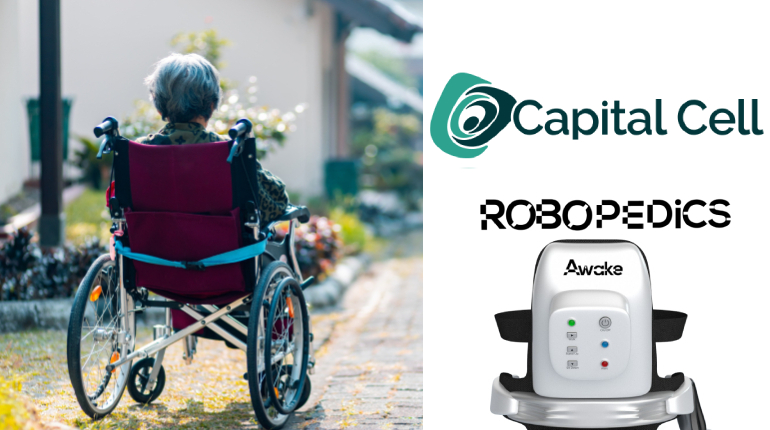Robopedics has raised more than €500,000 in its first financing round - #BHHMembersInitiatives
BHH member Robopedics, the startup founded with the aim of creating the world’s first robotic orthopaedic solution for personal use as an alternative to exoskeletons allowing people suffering from hemiplegia due to stroke to walk independently without medical supervision, has closed its first financing round for €500,000. Robopedics aims to have its first device ready by 2023 and provide a solution for millions of patients worldwide.
The round has been carried out through BHH member Capital Cell, the first online investment platform in Europe specialised in health and biotechnology, along with investors from the IESE Business Angels network and the Col·legi d'Economistes de Catalunya (EconomistesBAN). "We are very pleased to have closed our first round raising these funds which we will use to develop our first fully functional prototype to begin clinical trials both in the European Union and in the USA," explains Iván Martínez, founder and CEO of Robopedics.
The startup requested a minimum of €250,000 from investors and finally raised a total of €312,000 in investment funds in short time. Technology, determination and purpose This idea arose as a consequence of a real need for Iván Martínez after his father suffered a stroke that left him with hemiplegia and confined him to a wheelchair. Iván was frustrated by the lack of solutions on the market, and using his experience as an industrial engineer, decided to create a robotic solution on his own to help his father and all people in a similar situation.
"The goal is not to provide rehabilitation but to help these people to get up and walk, improving their health and quality life and giving them and their families hope", explains Robopedics' founder. As Daniel Oliver, Director of Capital Cell, explains, "projects born out of the direct experience of their founders with an unmet medical need" tend to have several advantages.
Firstly, the clinical need becomes guaranteed: anyone with a parent or child with a serious health problem knows that they have examined and exploited all available solutions. Besides this, Iván's prototype has proven its usability and potential and the company has been able to get appropriate business advisors (Marc Serra), strategy and marketing experts (Dionís Guzmán), and their capital requirements will be relatively low.
Therefore, we firmly believe that this is a highly profitable project with a high social impact.
Awake is the first product the company is working on. It is a robotic system that allows people who have suffered a stroke and are wheelchair bound to walk again independently in their own environment. Robopedics seeks to deliver a revolutionary solution by making available a technology that is currently only used in clinical scenarios.
Stroke, world's 3rd leading cause of disability "Our vision is one where neither affordability nor accessibility is an obstacle. The current exoskeleton solutions are exorbitantly expensive, making them inaccessible to most patients, and their use is restricted to clinical environments... so we want to change this and bring the technology closer to the millions of patients who are wheelchair-bound as a result of stroke", says Martinez.
Stroke is the world's third leading cause of disability and the inability to walk is a serious frequent consequence of stroke. Between 20 and 25 per cent of more than 100 million stroke survivors worldwide nowadays are unable to walk independently without comprehensive physical support and never restore their functional ability.
Robopedics teams up with an experienced senior workforce with extensive experience in launching and developing new businesses, complemented by advisors and partners of well- known reputation in the fields of engineering, medicine, clinical rehabilitation, healthcare technology transfer and medical device regulation.
Some of the companies and entities that collaborate with Robopedics include Fundació Ictus, Axial Biotech, CT Engineering Group, Institut Guttmann, Hospital Clínic, the Societat Catalana de Medicina Física i Rehabilitació, as well as Barcelona Health Hub.


